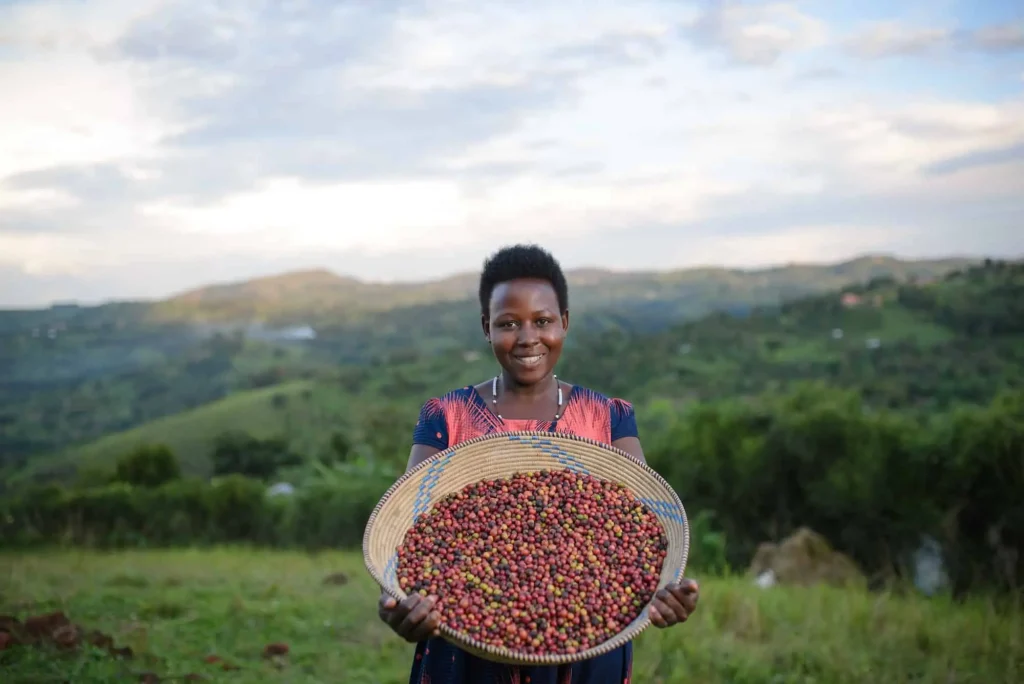Women in African Coffee: Empowerment Through Farming and Trade

For centuries, coffee has been at the heart of Africa’s cultural, social, and economic life. From Ethiopia, often celebrated as the birthplace of coffee, to countries like Uganda, Rwanda, Kenya, and Tanzania, coffee cultivation has shaped communities and driven livelihoods. Yet, behind the beans that reach international markets lies an often-overlooked story: the role of women in African coffee.
Women represent a significant portion of the agricultural workforce across the continent, often carrying out tasks such as planting, harvesting, sorting, and processing coffee. Despite their essential contributions, many women face systemic challenges, including limited access to land, credit, training, and leadership opportunities. In recent years, however, a growing movement within the coffee industry has begun to recognize and empower women, transforming not only their lives but also the broader African coffee sector.
The Central Role of Women in African Coffee Farming
Women are deeply involved in every stage of coffee production. Studies estimate that women contribute up to 70% of the labor required in coffee farming across Africa. They are responsible for nurturing the plants, picking ripe cherries, and meticulously sorting beans to ensure quality.
Despite this, women often lack ownership of the farms they work on. Land inheritance traditions and property laws frequently limit women’s rights, meaning their contributions remain undervalued or invisible. This imbalance creates barriers to securing loans, investing in better farming tools, or receiving training in improved agricultural techniques.
Recognizing this imbalance is the first step toward addressing the structural challenges women face in the coffee sector.
Empowerment Through Cooperatives and Associations
One of the most effective ways women are finding their voice in African coffee is through cooperatives and associations. These organizations give women collective bargaining power, a platform to share knowledge, and opportunities to access international markets.
For example:
- Rwanda: Women-focused cooperatives like Abahuzamugambi have helped widows of the genocide find independence and dignity through coffee farming. Their beans are now sought after by specialty roasters worldwide.
- Uganda: The Kawacom Women in Coffee Alliance empowers women by providing training in sustainable farming and business management.
- Ethiopia: Women’s groups are leading the way in traditional coffee ceremonies and community-based enterprises, linking cultural heritage with economic empowerment.
These initiatives not only increase income but also elevate women’s status within their communities.
Education and Training as Tools for Change
Empowering women in African coffee farming is not only about access to markets; it also involves capacity-building. NGOs, governments, and private-sector initiatives are increasingly investing in training programs that teach women improved farming techniques, financial literacy, and leadership skills.
Training in climate-resilient agriculture, for instance, ensures women farmers can adapt to the challenges of global warming, which threatens coffee yields. Meanwhile, education in marketing and branding helps women farmers move up the value chain, from selling raw beans to producing roasted coffee under their own labels.

From Farming to Trade: Expanding Opportunities
While women have traditionally been limited to labor roles on the farm, growing initiatives are opening doors for them in trading, exporting, and entrepreneurship. By moving into these areas, women can capture greater value from the coffee they help produce.
For instance:
- Women-led coffee brands from Rwanda and Kenya are exporting specialty coffee to Europe and North America.
- Online platforms now allow women-owned cooperatives to connect directly with international buyers.
- Fair trade certifications increasingly highlight women’s contributions, giving consumers the chance to support gender equity with their purchases.
These opportunities not only increase financial independence but also create role models for future generations.
Challenges That Still Remain
Despite these advances, significant challenges remain for women in African coffee:
- Access to land: Many women still cannot own land legally or culturally.
- Financial barriers: Without collateral, women struggle to obtain loans to invest in equipment or expand production.
- Cultural barriers: Traditional gender roles may prevent women from participating in decision-making processes.
- Market inequalities: Even when women access markets, they may still receive lower prices compared to male counterparts.
Addressing these issues requires systemic reform, from government policy changes to shifts in community attitudes.
The Broader Impact: Empowering Communities
Empowering women in African coffee is not just a matter of fairness; it benefits entire communities. When women earn more, they reinvest in their families, improving education, nutrition, and healthcare for their children. Communities also benefit from more resilient and sustainable farming practices as women often adopt long-term approaches to land stewardship.
Ultimately, supporting women in coffee means supporting the sustainable growth of African coffee itself. By unlocking the potential of half the population, African countries can strengthen their position in the global coffee market while fostering more equitable societies.
Conclusion
The story of African coffee is inseparable from the story of its women. For too long, their essential contributions have been under-recognized, but change is underway. From grassroots cooperatives to international trade networks, women are gaining visibility, resources, and opportunities. The empowerment of women in African coffee is not only transforming individual lives but also reshaping the industry for a more inclusive and sustainable future.
FAQs about Women in African Coffee
1. Why are women so important in African coffee production?
Women contribute the majority of labor in planting, harvesting, and processing coffee, making them essential to the industry’s success.
2. What challenges do women face in African coffee farming?
Key challenges include lack of land ownership, limited access to credit, cultural barriers, and lower pay compared to men.
3. How do cooperatives help women in coffee farming?
Cooperatives provide collective bargaining power, training, and access to international markets, helping women increase income and recognition.
4. Are there examples of successful women-led coffee initiatives in Africa?
Yes. Rwanda, Uganda, and Ethiopia have several women-focused cooperatives and brands that export specialty coffee globally.
5. How does empowering women benefit the African coffee industry as a whole?
Empowered women improve sustainability, reinvest in communities, and enhance Africa’s competitiveness in global markets.